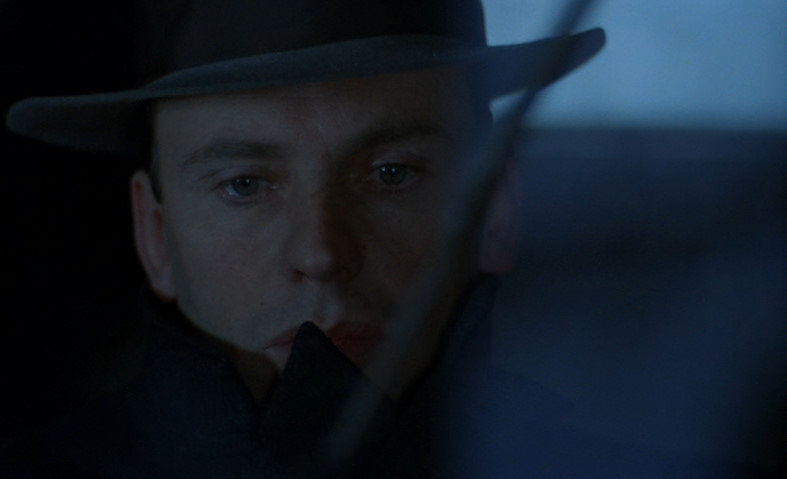 Concluding the trilogy to perfection, 'Apur Sansar' shows Apu (Soumitra Chatterjee) as a grown man but still experiencing the same ambitions, sense of responsibility and struggles as before. Apu is now an unemployed graduate in Calcutta, feckless as always as he avoids paying the rent and like his father before him using his education and dreams to distract from the realities of working for a living. An aspiring writer, Apu works on a story that is largely autobiographical and has the odd short story published but otherwise Apu rather drfits through life, though this all changes through a chance meeting with an old friend Pulu, who invites him to the wedding of a cousin. It emerges that the bridegroom has a deep mental illness and the bride's mother refuses her daughter to marry him, though the bride's father is concerned about the shame it will bring upon the family to call off the wedding, which would inevitably leave his daughter unable to marry in the future.
Concluding the trilogy to perfection, 'Apur Sansar' shows Apu (Soumitra Chatterjee) as a grown man but still experiencing the same ambitions, sense of responsibility and struggles as before. Apu is now an unemployed graduate in Calcutta, feckless as always as he avoids paying the rent and like his father before him using his education and dreams to distract from the realities of working for a living. An aspiring writer, Apu works on a story that is largely autobiographical and has the odd short story published but otherwise Apu rather drfits through life, though this all changes through a chance meeting with an old friend Pulu, who invites him to the wedding of a cousin. It emerges that the bridegroom has a deep mental illness and the bride's mother refuses her daughter to marry him, though the bride's father is concerned about the shame it will bring upon the family to call off the wedding, which would inevitably leave his daughter unable to marry in the future.This is the pivotal moment in Apu's adult life; the moment in which he accepts responsibility and decides to put another first. He agrees to marry Pulu's cousin Apama (Sharmilla Tagore). As they return to Calcutta, the initial months of their marriage is shown through a combination of confusion, lack of communication and an incrasing awareness of what they both agreed to do. Apu is now aware of his inability to cope with the responsibilities of being a husband, warning Apama that he has no means, no job, no kind of future - that he has nothing to offer her. Against these odds however, their marriage blossoms and becomes increasingly blissful. An obvious love develops between them, told more so in their letters when they are apart than in their conversations. However, as has been the case in the trilogy thus far, any chance of happiness is usually taken away, and this is so when Apama dies in childbirth. Much like his mother before him, Apu is now placed in the position of being a lone parent, and Apu's mindset really couldn't be more different to his mother's. Whereas she took this burden on, Apu goes to pieces, rejecting the son that was responsible for the death of his wife and the end of his happiness, and admits that he doesn't love him and can't care for him. Of course there has to be a period of self-recognition and self-awareness for Apu, for him to finally accept his responsibilities. This duly occurs, but is not conducted in a trite or simplistic fashion. It seems natural, never forced.
Ray concludes his trilogy perfectly and maintains the breathtaking quality of the two films which preceded it. The final scene precisely captures the essence of the trilogy; an uncertain acceptance of responsibility, as Apu tries to learn to become the father to the son he barely knew until now before carrying his son into the distance on his shoulders. Although we see the world through Apu's eyes throughout and learn to sympathise with him, that's not to mean that we don't see every facet of his personality. We fully recognise his fecklessness, his apathy and his tendency towards being irresponsible - it's rare that a main character is so fully rounded, but that's the luxury of devoting three films across a period of twenty or so years allows. In each film, Apu loses a loved one and experiences but finds the strength and capacity to move on; he's a resilient hero whom we come to identify with. It's pitch perfect throughout; flawless film making. Ray was always considered one of the most humane film makers, and you couldn't disagree, such is the warmth and empathy that is at the heart of this justly renowned series of films. 5/5













